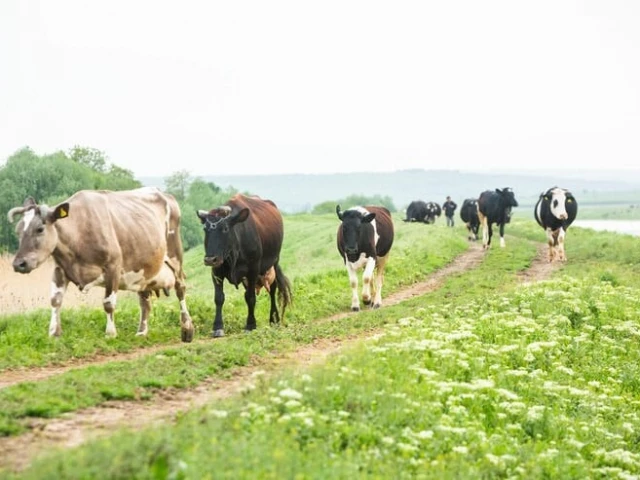Govt allocates Rs4b for agriculture, livestock in FY26
No new taxes on fertiliser, pesticides; seed sector reforms, foreign training programmes announced

In the federal budget for the fiscal year 2025-26, the government has announced some initiatives to support the agriculture and livestock sector of the country. The initiatives seem aimed at modernising, especially the agriculture sector, and strengthening food security across Pakistan.
Since agriculture and livestock is a provincial subject, the federal government can only help provinces up to a certain extent. Federal Finance Minister Muhammad Aurangzeb, during his budget speech, said that an allocation of over Rs4 billion has been set aside for both sectors.
The minister said that they are not imposing any new taxes on fertiliser and pesticides for FY26. This initiative, he said, will help the sector and the farmers' community to boost production.
Topline Securities, in a note, said that despite committing to the International Monetary Fund (IMF) last year, the government has managed to keep the Federal Excise Duty (FED) rate on fertiliser and pesticides unchanged. "For the fiscal year 2025-26, we believe the IMF would be onboard with this decision as media was also quoting that the prime minister is expected to take up this issue with the IMF personally."
Breaking down this over Rs4 billion allocation, an amount of Rs2.02 billion has been set aside by the Ministry of National Food Security and Research under the Public Sector Development Programme (PSDP), out of which Rs500 million has been reserved for promoting olive cultivation, Rs485.8 million for expanding irrigation systems in rain-fed or 'barani' areas, Rs100 million for the National Oilseed Production Programme, and another Rs200 million for a feasibility study on a proposed National Agricultural Productivity Enhancement Project. Additionally, Rs100 million has been allocated to conduct a feasibility study for the establishment of a Model Agriculture Research Centre. Apart from that, Rs360 million has been earmarked for a national programme to control livestock diseases, while Rs300 million will be used to set up three feed certification laboratories. These steps aim to improve animal health, boost meat and milk production, and raise overall productivity in rural communities.
Aurangzeb said that Pakistan is enhancing its seed sector by establishing the National Seed Development and Regulatory Authority to ensure the availability of quality, standardised, and climate-resilient seeds. He added that the ministry is digitising the seed system's regulation, covering all aspects of registration, renewal, monitoring, and enforcement. Efforts are also being made to boost seed-related research and attract new investment in the sector. The National Seed Policy 2025 and National Agricultural Biotechnology Policy 2025 are close to approval, while implementation of the Plant Breeders' Rights Act is being prioritised to promote innovation and protect local seed developers, he added.
The finance minister also said that to support human resource development in the agriculture and livestock sector, 300 graduates from Pakistan will be sent to China for specialised training in modern agricultural techniques. "This programme will provide international exposure and contribute towards food security by equipping our youth with the skills needed to improve productivity and manage post-harvest losses," he added.
Despite these steps, the budget received criticism from industry experts and stakeholders. Ahmad Jawad, Chief Organiser of the Pakistan Business Forum (PBF), expressed disappointment over what he called the government's failure to provide meaningful relief for the agriculture sector. He stated that although the federal government has the authority to reduce the cost of doing business for farmers, the budget did not include any clear incentives or support measures.
"On one hand, the finance minister has set an ambitious agricultural growth target of 4.5%, including 6.7% for key crops and 7% for cotton ginning, yet on the other hand, there's not a single measure or tax relief to support this goal. It's a mockery," said Jawad. He pointed out that during the current fiscal year, agriculture only grew by 0.56%, while cotton ginning saw a sharp decline of 19%. He warned that the government would not be able to meet its growth targets unless concrete steps were taken to support farmers.
"How can farmers meet these targets when they are denied basic inputs like affordable fuel and fertiliser," he asked, adding that Parliament should intervene and reschedule the proposed finance bill with genuine relief measures for the agriculture sector before it is passed.





















COMMENTS
Comments are moderated and generally will be posted if they are on-topic and not abusive.
For more information, please see our Comments FAQ